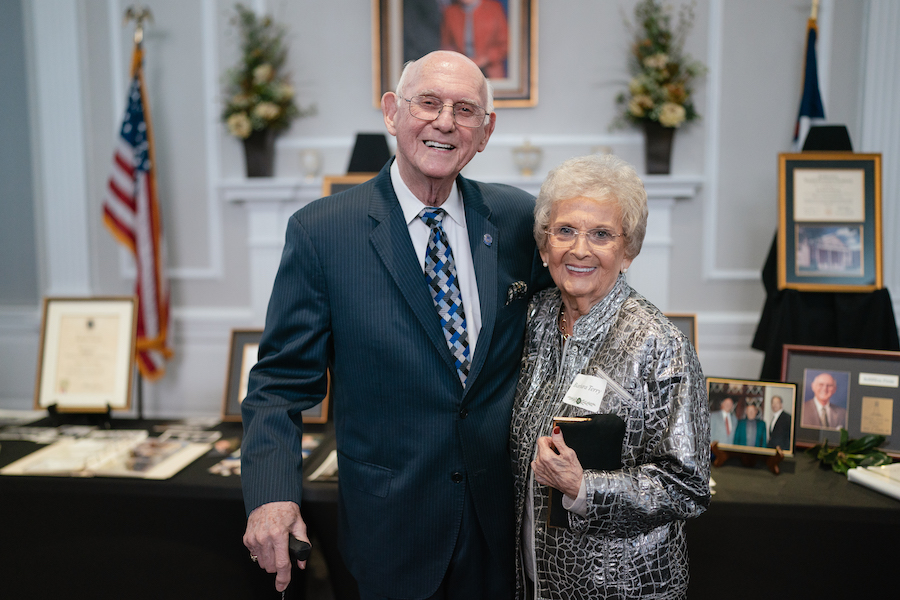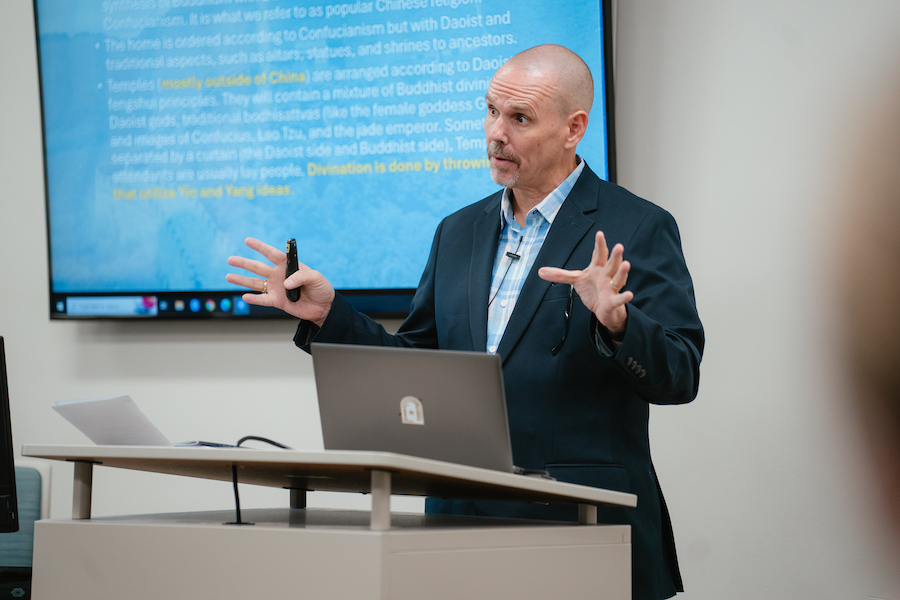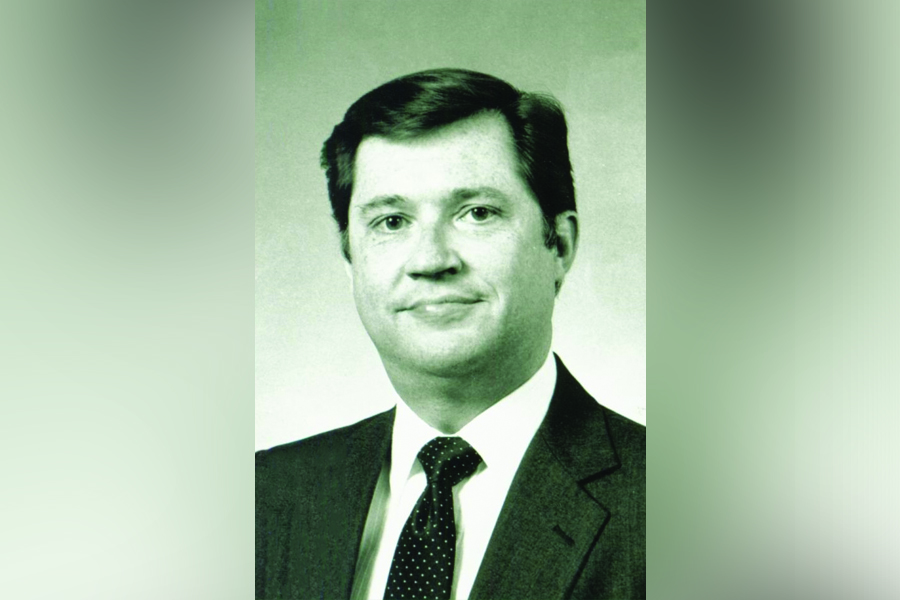Through classroom instruction Streett lays foundation of Scripture for ministry
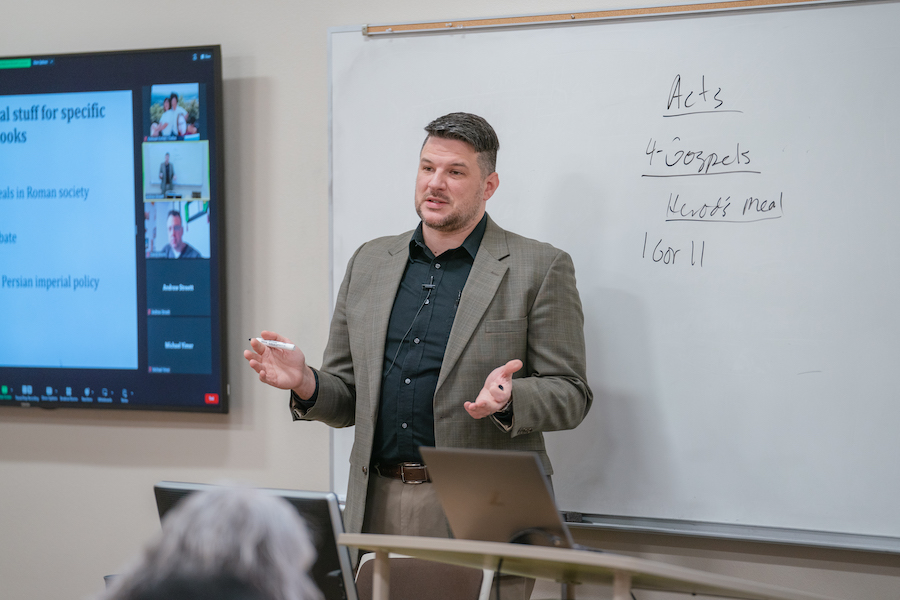
Sitting under his father’s preaching grew a love for the Word of God in the heart of Andrew Streett, associate professor of biblical studies at Southwestern Baptist Theological Seminary.
A native of Maryland, Streett moved to Dallas as a two-year-old so his father, R. Alan Streett could begin teaching at Criswell College, where he currently serves as senior distinguished professor emeritus of biblical theology. After five years in the Dallas area, Streett’s father planted a church and the younger Streett recalled that from that time until he was an 18-year-old, he grew up under the teaching and preaching of his dad.
Streett described his father’s preaching as “expositional,” meaning verse-by-verse, and he “grew to love Scripture and explaining it, interpreting it.” He remembers his family’s ministry in the young church plant was “formative” as Streett was baptized in the pool of a hotel where the church met. He added that the homeschooling offered by his mother and his time as an undergraduate student at Hillsdale College in Hillsdale, Michigan, rounded out his formative experiences.
While at Hillsdale, Streett was studying the courses prescribed for his history major. However, when he changed majors to religion and philosophy with a minor focused in classical languages, he discovered a love of the languages. This prompted growth “there to study Scripture on a deeper level” including the “primary texts in their context,” he recalled. The example of his father “expositing Scripture week in and week out” was something Streett thought “would be a great thing to do.”
Streett sought the counsel of several of his professors, who he described as “evangelical professors in the religion department.” Many were serving in interim pastor capacities and one invited Streett to fill the pulpit occasionally. When one of the professors stepped down from his interim pastor role, he recommended Streett to serve in his sted. Streett served as the interim pastor for nine months.
As he was “wondering” if he should be involved in full-time pastoral work, Streett was also contemplating furthering his academic studies. While his time in the interim pastoral role “solidified the importance of the pastoral side of things” for him, he explained, he also wanted to pursue “the academic side.”
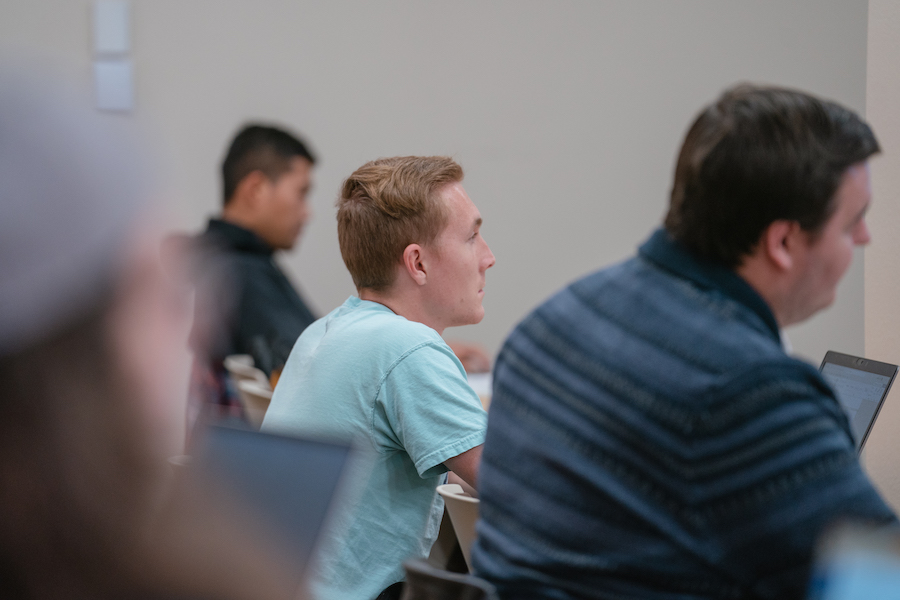
Through his classes as associate professor of biblical studies at Southwestern Baptist Theological Seminary, Andrew Streett seeks to help students learn that the Bible is the “foundation of everything we do,” he said as teaches students to apply the Scriptures to every ministry setting.
During his graduate-level coursework and the opportunities he had to teach as an adjunct professor, Streett said “the academic side became more clear to me as a primary calling.” His dissertation research for his Doctor of Philosophy degree at the University of Wales, Lampeter, in the United Kingdom, was additional confirmation. While studying for his doctorate and working on his dissertation, Streett and his wife, Allison, and their children moved to Albuquerque, New Mexico, where he began serving as associate pastor for adult discipleship at his wife’s home church. He said while serving in the role he helped “the pastor formulate sort of a theological vision for the church and ministry.”
Streett served in New Mexico for a couple of years before he began teaching Greek as a professor at Redeemer Seminary in Austin. He served in the role for almost five years before the seminary shut down. However, he reflected that “those were great years.”
“I got to cut my teeth on full-time teaching, develop a lot of classroom materials and methods,” Streett remembered. “There were a lot of small classes with people already in ministry in the area and all sorts of different students. It was awesome.”
After the closure of the Austin-based seminary, Streett began teaching at Southwestern in the spring of 2017. He explained when he began teaching at the Fort Worth seminary it was “a little bit of a learning curve” as there were more students in the classes than he was previously accustomed.
Streett explained his first semester at Southwestern “helped me see that my default teaching style and my default way of examining and giving assignments” was not “purely objective.” During his time teaching at the seminary, he has learned to assess the starting point for each of his students as he asks questions and gets to know them inside the classroom and before and after class.
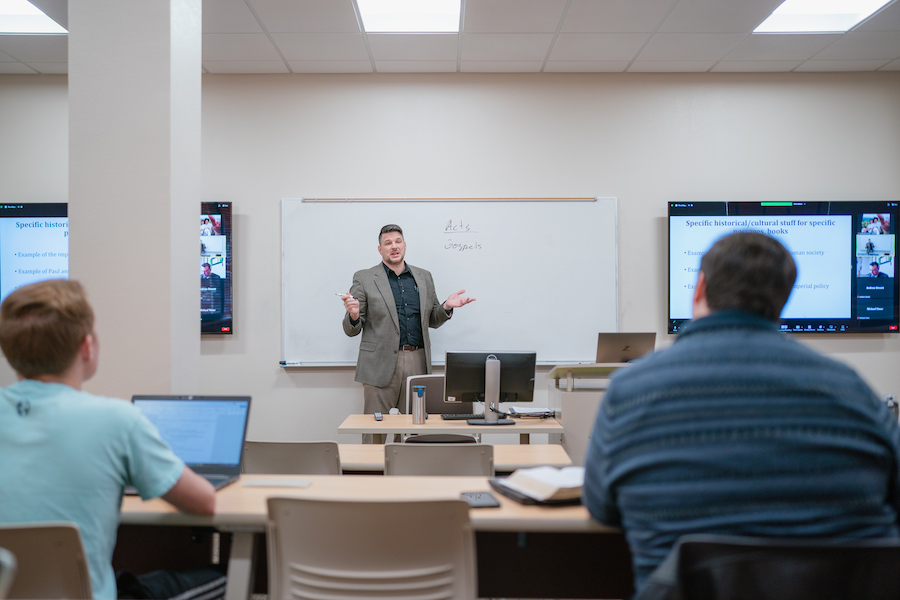
Andrew Streett, associate professor of biblical studies at Southwestern Baptist Theological Seminary, learned to love the Scriptures as he heard his father, R. Alan Streett, senior distinguished professor emeritus of biblical theology at Criswell College in Dallas, Texas, preach the Word of God expositionally.
As Streett teaches in the classroom, he is driven by a focus “on understanding Scripture and being able to put it into practice in a variety of ministries that we have.”
“The Scripture is the foundation for everything we do,” Streett observed. “Even the things where it’s hard for us to trace back the route by which we got from Scripture to our practice, we still need to re-examine” the process as “all of it needs to be based in Scripture.”
He added if there is not “a good foundation in Scripture” then “everything else is going to be askew.”
Within the classroom, Streett seeks to create an environment “where every student is encouraged to contribute meaningfully to class discussions,” said Federico Fretes, a Doctor of Philosophy student from Paraguay. Fretes first met Streett as his professor for Greek 3 when he was working on his Master of Divinity degree and said Streett has become “a consistent presence in my academic pursuits.”
Fretes said Streett has made a “lasting impact” on his life, including in “academic, faith, and personal dimensions.”
“Under Dr. Streett’s guidance, I experienced substantial growth in my understanding of Greek, the Bible, and the New Testament field,” Fretes explained. He added that Streett’s “example has profoundly influenced” him as the professor is a “man of faith” who is “unafraid to tackle the tough questions frequently encountered in the field of biblical studies.”
“Beyond the classroom, Dr. Streett actively supports students’ professional development,” Fretes added. “Approachable and always available for discussions, he has guided me in planning my academic trajectory, leveraging opportunities for advancement in my career.”
Brian Berry, instructor of biblical studies at Texas Baptist College, agreed that Streett helps students beyond the classroom. Berry is a student in Southwestern’s Doctor of Philosophy degree program and Streett has been his doctoral supervisor for the last four years.
Describing Streett’s influence on his life as “significant,” Berry said while he was a teaching assistant (TA), Streett recommended him as the seminary’s biblical languages tutor.
“This position gave me the experience to work with students from different backgrounds and geographical locations as they sought help in their Greek and Hebrew learning,” Berry explained. “This experience also sharpened my skills to later teach on the collegiate and seminary level.”
Berry added that Streett “has been present for discussions about life and ministry outside of the classroom on several occasions” and this has been “an invaluable aspect” of his doctoral studies. Streett recommended Berry for a “scholarship opportunity with B&H Publishers that paid for my travel expenses to ETS and he provided a second pair of eyes for my paper which was accepted for a presentation session at the conference” in Nov. 2023, Berry said.
Master of Divinity student Samuel Kim said Streett has helped him “become a better interpreter and teacher of the Bible by appreciating its different literary genres.” Originally from South Korea, but raised in the Dallas-Fort Worth Metroplex, Kim explained that in Streett’s New Testament II course, the professor had the students read short epistles aloud and then facilitated discussion about “how they functioned as real letters that are also inspired Scripture.”
“I was amazed that we could engage with God’s inspired literature and all its various genres to learn more about the Gospel and theology,” Kim added. He said the lessons have prompted him to try to “instill that same sort of excitement in others as I engage in various ministry settings.”
When students leave his classroom after each semester, Streett hopes they have “gained a foundation for further study.” Striving to ensure that each student has the competence and confidence to continue studying, he said he desires for students to be “self-starters” who are also “self-studiers” as he helps them “build skills” and “think through issues” as they “learn to think for themselves.”
Streett concluded that a “big part” of why he teaches at Southwestern is the students. Recognizing that many of Southwestern’s students are “already active in ministry,” Streett said he likes to hear that many are making real-time application of his classroom teaching.
Regardless of the ministry context – youth ministry, women’s ministry, or evangelism – Streett said he loves when students tell him, “I was taking this class and I was teaching it at the same time” noting that “they’re immediately taking it and putting it into practice.”
“And so that’s a huge thing.”
